The Audubon Observer, September 2019
|
|
||||
|
BIRDS AND HURRICANES How do birds fare during a hurricane? Migrating birds usually wait for favorable weather conditions before starting a migratory flight, but sometimes flocks of migrating birds are already over open water when a hurricane develops, and can get pushed way out of their normal migration path by the strong winds.
Some birds may find their way back to their migratory route after the storm, but others may be thousands of miles away from where they should be, and may perish if they are unable to find food. Even resident birds can be affected, as strong winds may strip berries and fruits from trees and shrubs, depleting their food supply as well. You can help migrating and resident birds survive a hurricane by providing food and fresh water for them after the storm. However, please make sure to take your feeders down before the storm hits, as they may become dangerous projectiles in high winds. Seabirds more common to South Florida waters like Magnificent Frigatebirds, Brown Noddys, Black Terns, and Sooty Terns may also be pushed northward by a big storm, so if you are a coastal birder and can safely observe from the shore after the hurricane passes, make sure you have your scope and report your sightings at eBird.org. Your observations will help to document the impact of strong storms on bird species and create a more complete picture of the health of bird populations in our changing climate. As the current hurricane season progresses, be sure to keep yourself and your family safe, but don't forget about our avian friends! NATIVE PLANTS FOR BIRDS: TRUMPET HONEYSUCKLE To help you create bird friendly habitat in your landscape, we will be sharing a native plant every month that is beneficial to birds and pollinators. This month's plant is: Trumpet Honeysuckle Vine (Lonicera sempervirens):
If you do not have a yard to grow it in, you can grow it on your patio in a large pot using a cage or other supports for it to climb on and it can be easily pruned and shaped if you wish. For additional information on native plants for birds, check out Audubon's excellent Plants for Birds website: Audubon.org/plantsforbirds. For local sources of native plants, check with the Ixia Chapter of the Florida Native Plant Society. They often have native plants as well as cuttings available at their monthly meetings on the first Tuesday of each month. Check out their Events Calendar for all of their upcoming activities. --Jody Willis, President, Duval Audubon Society EAGLEWATCH TRAINING IS COMING UP SOON
Audubon EagleWatchers collect important data on nesting eagles in Florida including productivity, active nest locations and possible disturbances or threats to nesting activities.The program engages volunteers and individuals to help protect our nation's symbol. If you would like to become an "EagleWatcher" with Audubon's EagleWatch program, register to attend the upcoming training session: 10 am - noon, Saturday, September 21, 2019 @ Registration is required! Register at: Questions? Call (407) 644-0190, ext. 118 or email eaglewatch@audubon.org. AUDUBON MEMBERSHIP ISSUES
If you are unsure of the status of your Audubon membership or your membership expiration date, please feel free to email our membership chair Christine Lucas, who can check that information for you: christinelucas@duvalaudubon.org. We apologize for any inconvenience! UPCOMING EVENTS We are excited to start our 2019/2020 "season" this month! Please join us for one (or more) of our upcoming field trips or programs. All are welcome!
You can find more great outings and activities on our website. See you soon! Duval Audubon Society, Inc. |
||||

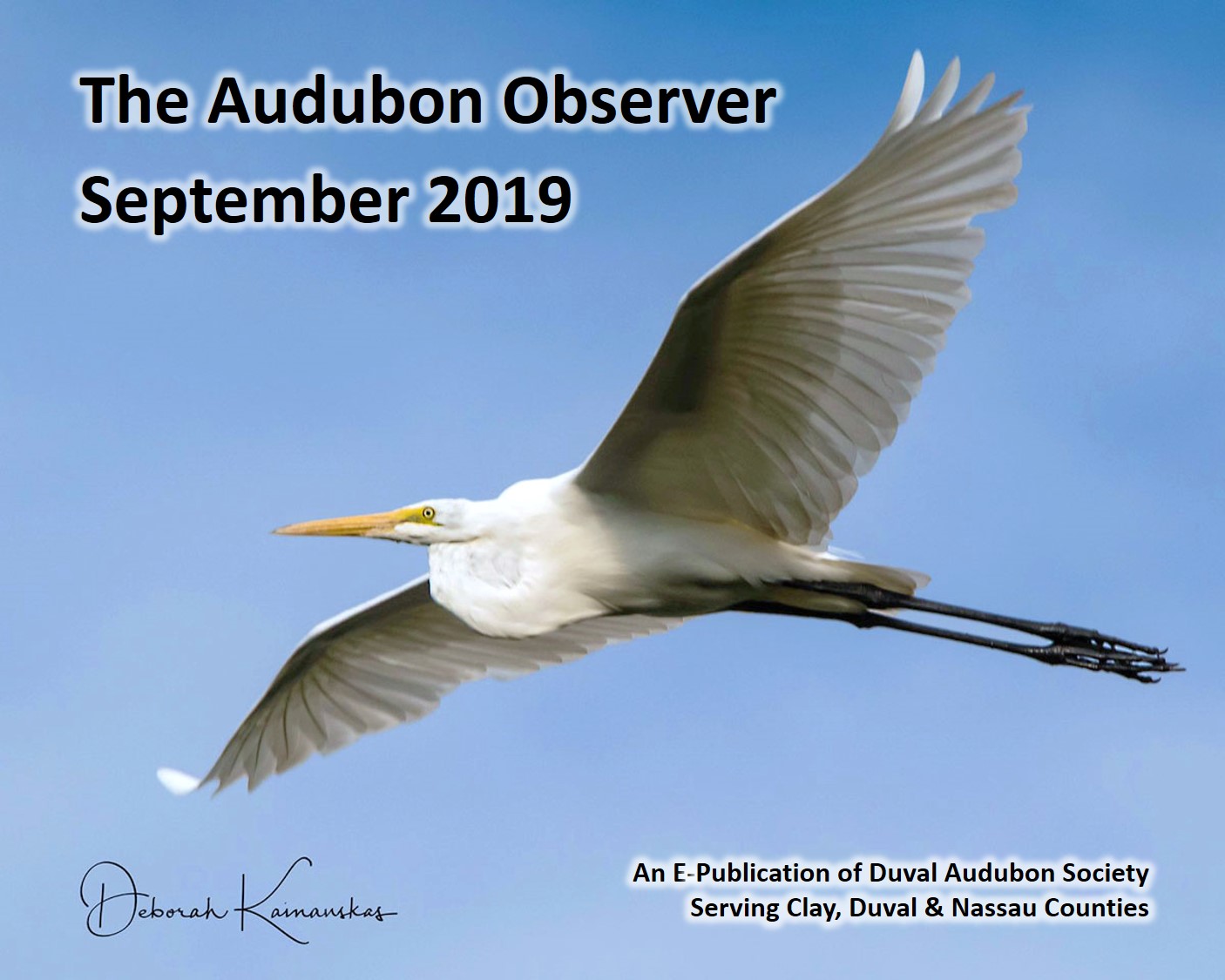
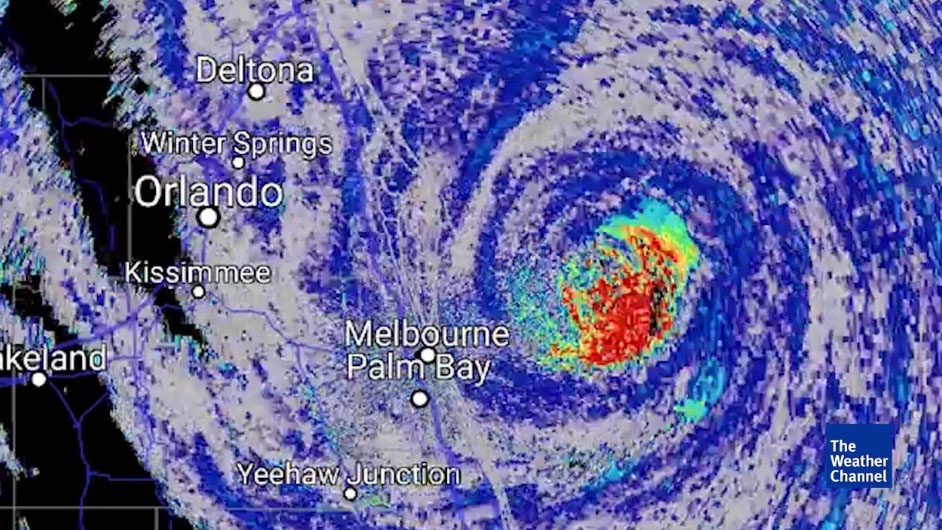 Large flocks of birds have even been observed on radar, trapped in the calm center of the storm, as shown in the Weather Channel radar image at left, captured during Hurricane Matthew in 2016. The red area actually represents thousands of birds trapped in the eye!
Large flocks of birds have even been observed on radar, trapped in the calm center of the storm, as shown in the Weather Channel radar image at left, captured during Hurricane Matthew in 2016. The red area actually represents thousands of birds trapped in the eye!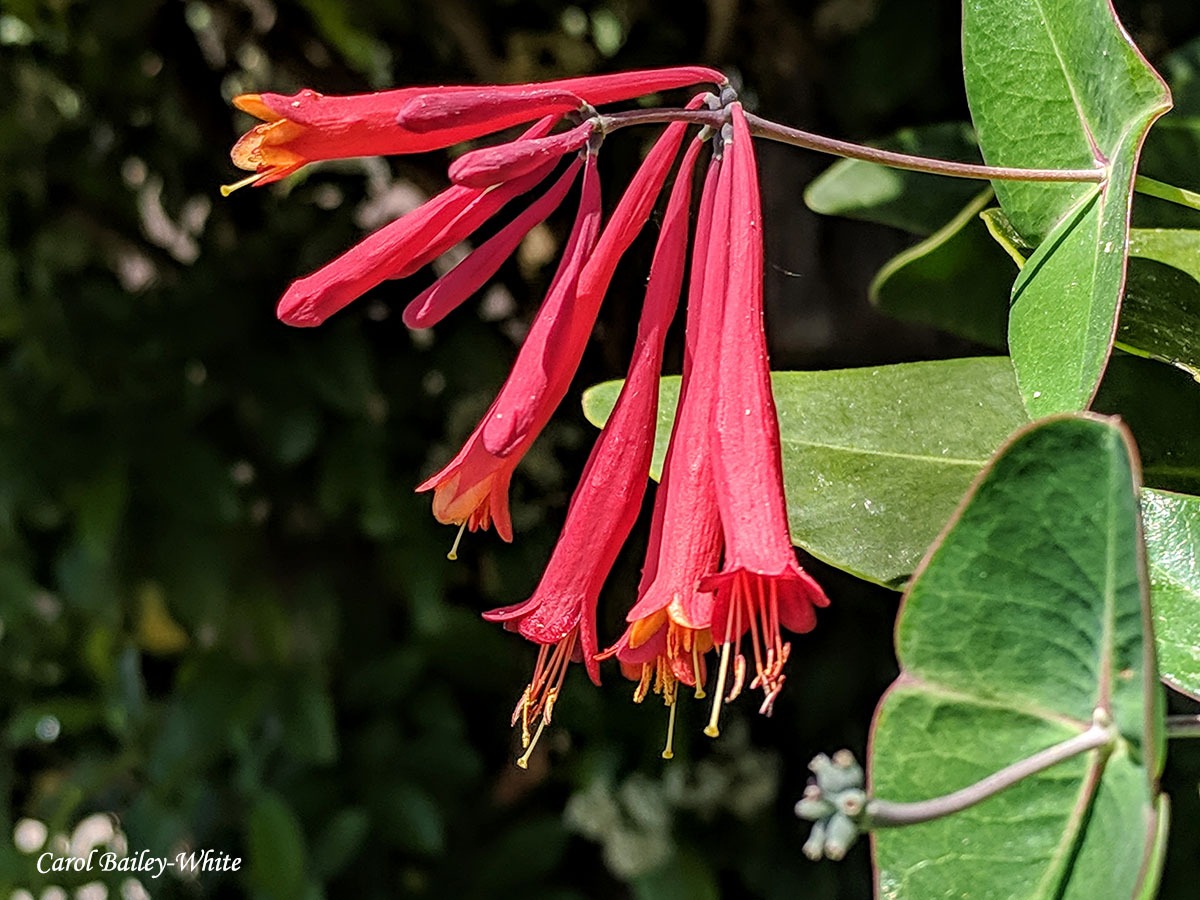 This lovely vine is also known as Coral Honeysuckle. It grows to about 15 feet in length in light exposure ranging from light shade to full sun. It is easily cultivated under a variety of situations from either seed or cuttings and can tolerate poor soil subject to drought. However, for maximum flowering, it is best cultivated in a sunny location. It is deciduous in North Florida (loses its leaves in the winter) but easily comes back in the spring. Trumpet Honeysuckle has beautiful red trumpet- shaped flowers which are irresistible to hummingbirds, bees, and butterflies. It produces small, brilliant red berries which are attractive to birds, including waxwings, woodpeckers, chickadees, titmice, nuthatches, crows, and jays.
This lovely vine is also known as Coral Honeysuckle. It grows to about 15 feet in length in light exposure ranging from light shade to full sun. It is easily cultivated under a variety of situations from either seed or cuttings and can tolerate poor soil subject to drought. However, for maximum flowering, it is best cultivated in a sunny location. It is deciduous in North Florida (loses its leaves in the winter) but easily comes back in the spring. Trumpet Honeysuckle has beautiful red trumpet- shaped flowers which are irresistible to hummingbirds, bees, and butterflies. It produces small, brilliant red berries which are attractive to birds, including waxwings, woodpeckers, chickadees, titmice, nuthatches, crows, and jays.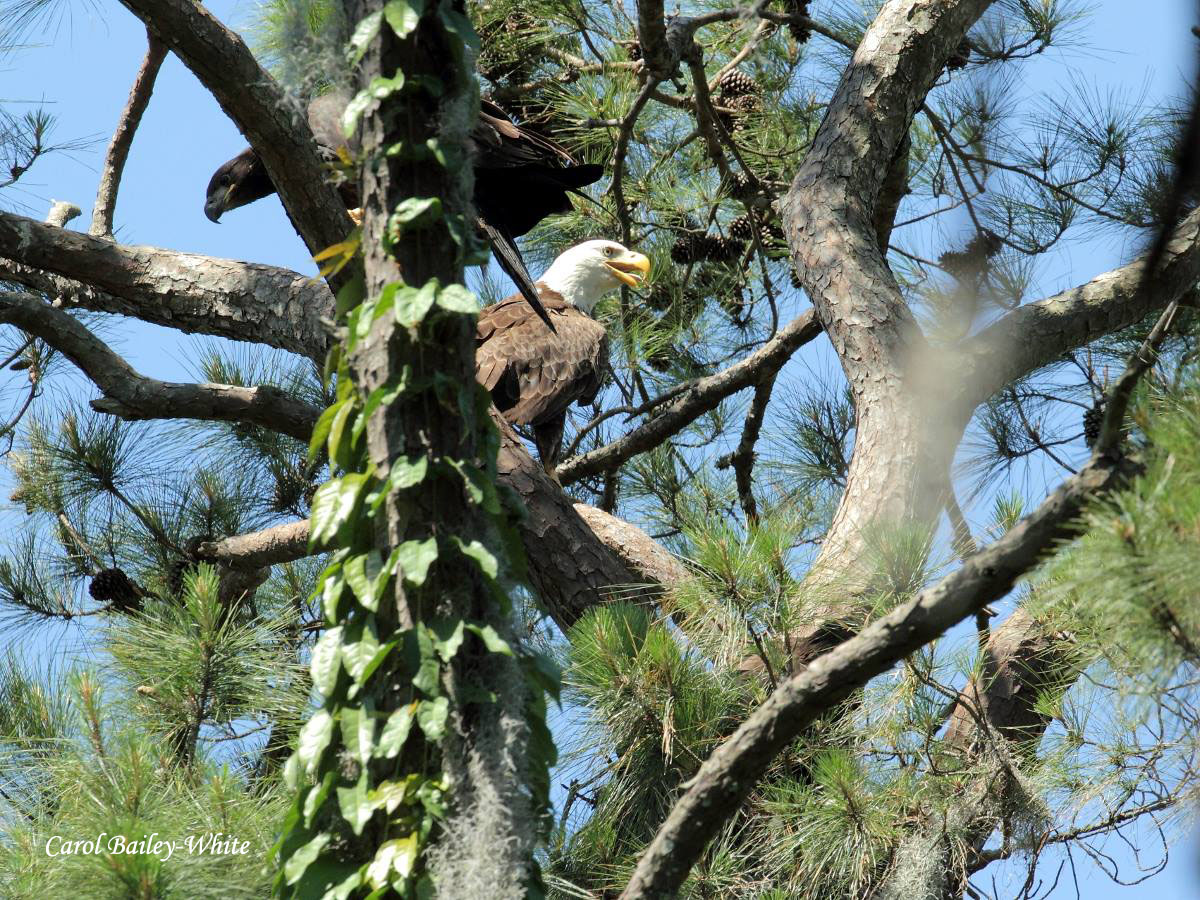 Audubon EagleWatch
Audubon EagleWatch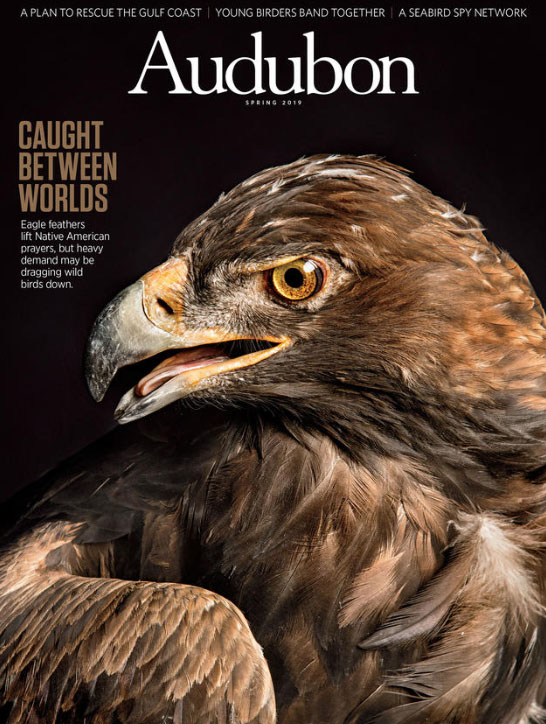 If you live in Clay, Duval, or Nassau counties and are a member of the
If you live in Clay, Duval, or Nassau counties and are a member of the